Newsletter
| Location: | Abetifi District, Kwahu Mountains, Eastern Region, Ghana |
| Availability: | Year Round |
| Price: | From $85 per week |
| Duration: |
1 – 52 weeks |





Communities we work alongside
Than other similar organisations
Volunteer rating
Join the fight against plastic to enhance and improve the local environment. Arranging community cleanups and collection points from a rural waste management service struggling to keep up with demand, producing ecobricks to use in school and community projects such as seating, buildings and greenhouses alongside creating and implementing upcycled items using waste plastics. All whilst joining in on the education campaign side of things to demonstrate and explain to local communities and schools just how damaging the current situation is and why it is so important to reuse and recycle.
Single use plastics are a major issue in Ghana and across West Africa. With a large part of the population living under the poverty line, companies opt for single use plastics to maintain lower price points. There is also a lack of knowledge and understanding on just how much impact plastics and waste are having on the environment and why it is so important we act now in our fight against plastic waste. The attitudes across the regions are starting to be more environmentally friendly focused with some companies and government schemes highlighting these issues however with everything in Ghana, at it’s current pace it will take a long time before the impact is truly felt and understood in our rural areas.
The plastic waste in question also has a huge impact on a choked waste water system, the towns that are lucky to have gutter systems in our areas are often open and these cause the plastic rubbish to collect, cause blockages and therefore the perfect breeding ground for mosquitos. This then impacts the most vulnerable in the community who don’t have access to mosquito screening etc to the health risks caused by malaria.
Also huge amount of plastic waste building up in the community rubbish dumps along with deforestation is having a massive impact on the health and variety of the local wildlife which then causes in some cases permanent damage to the fragile ecosystems.
After planning with our team and members of the local community we wanted to not only fight this plastic waste but to also produce useful and meaningful items with the waste! With research from partners across the country and Ghana we have setup an ecobrick chain working with local stores to collect the water bottles which in turn we will then use to the items collected in the community cleanups to produce these ecobricks which we will then use for community developement projects such as school buildings, seating and greenhouses to modernise small scale farming.
Support Staff – Accommodation – House Utility Bills – Pre Departure Support
We charge cost price for this project just so we can cover your stay and employ local support staff to increase loyal employment. This placement includes accommodation in a modern style house for the semi rural area of which we are based with great views and surroundings of the local towns and rainforest. All house utilities are included for your time, you will have use of the kitchen, electricity throughout the house and running water which is a luxury among the area of Kwahu. You will have a member of our local support team living in house or close by depending on the volunteer numbers so there is always someone on hand for any questions or support you may need.
Budget an additional 20 – 60 Ghana cedis per day for transport costs.
We work with a number of schools within the local community and slightly further out. Volunteers will usually take taxis back and forth to their placement site. It is very easy to take shared taxis in town and they are very reasonably priced. Most of our schools will require volunteers to pay transport between 5 cedis and 40 cedis a day, with the average being about 10cedis. The more remote village schools are usually located down tracks and therefore cost a little bit more to reach. Our team will be able to assist volunteers group together for transport and where to find taxis etc. Volunteers are usually able to head off into the town after school easily to shop for food supplies, grab a cold drink or meet up with friends before heading home and the ease of taxis offer a really flexible experience for the volunteers.
During your placement you will be scheduling and taking part in community cleanups and litter picks for part of the week. You will then be based in the volunteer accommodation or our workshop space to produce ecobricks and implement these projects where funds allow or help the team create and research items that can be produced and upcycled with the waste material collected. For those of you who also would like to be involved in the community outreach aspect we also arrange assemblies and demonstrations on plastic waste management and how everyone can get involved with the local schools and community groups. The placement is very flexible and the weekly timetable can be adjusted to suit your area of interest and passion along with combining with our other conservational projects across farming and agriculture.
You will usually be working alongside your fellow volunteers, support team or members of the community however for parts of the day you may be required to work independently.
A member of our volunteer support team will also visit you at your placement site periodically after the initial introduction to ensure you are getting on well and making an impact on site.
All we request is the passion and drive to make a difference with us, one step at a time. Being able to get involved and stuck in will help you much more with this project especially with the community cleanup days which can be tiring in the heat and humidity. The greatest traits of a volunteer are enthusiasm, empathetic and the ability to adjust to alternative cultures. You will get the most of our your trip by opening your mind to new experiences and beliefs whilst also bringing your own to the table.
We expect volunteers to visit their placements Monday – Friday, exceptions can be made for long weekends of travel etc but we hope for the children and yourselves to get the most of your placement this is kept to a minimum.
We will be on hand any time of any day to support you in your placement and trip as a whole. There will always be someone you can speak to or get a hold of should you want to discuss anything or require any guidance, from organising and altering your timetable to changing your placement. Our team living in the volunteer house will also be able to offer advice regarding travel plans and the local area so you will soon feel at home.
In terms of your placement make sure you bring at least one strong pair of shoes and full length trousers/tracksuit to use whilst on the community clean up days. For people with a passion with upcycling and creating new items we would also advise bringing plans or documents on ideas for this which we then plan to share to local communities or sell online to fund further projects depending on the items. Professional litter picking tools would also be amazing as they’re difficult to source locally.
Other than for the community outreach and education part of this placement the school holidays will not affect this placement and you will still be able to continue as normal.



We currently have 2 x three bedroom volunteer houses located in the peaceful town of Pepease overlooking the rainforest. Later in the year we aim to move to a larger 13 bedroom house in a nearby town.
Bedrooms –
Bedrooms are shared usually between 2 – 4 people. Most bedrooms are a medium size and come with a mix of single, double or bunk beds. All doors and windows in the house are covered by mosquito netting or covered completely however you are more than welcome to bring a mosquito net for your bed although usually not necessary.
Bathrooms –
There are 3 shared bathrooms in the house so offer plenty of space and privacy during your stay. Most of the time we have the benfit of running water which is a local luxury so showers and toilets will work as usual. We ask to consider others when using the water as it’s a valuable commodity in Ghana.
Kitchen –
We have one large kitchen with modern facilties such as gas stove, fridge freezer and a range of utensils. It is a self catered placement however plenty of food stuffs can be bought from the market such as bread, rice, pasta and many fresh ingredients. We also have connections with local people in the town who will be able to prepare your meals or teach you how to cook local dishes.
Living Room –
There is a large living room with sofas, TV and a dining set for use by the volunteers. Evenings are often spent in here and volunteers are welcome to bring DVDs or memory drives with movies to watch although local television channels are provided.
Garden –
Surrounding the house is a fenced garden, this offers privacy for relaxing in the sun or sitting out in the evenings. There is also a washing line space for volunteers to use.
Store Room –
We have a small store room where we keep left over teaching materials and resources for new volunteers to use. You are invited to leave any items you may not use here for the next person to continue the flow. Master copies of activity sheets or lesson plans are a key item we hope to see
keep growing in the store.
Your stay in our house includes the bills for electricity, gas for cooking and running water.
From application to departure you will receive friendly and helpful advice along the way. Starting from connecting to our management team online once we receive your application you will be met upon arrival to Ghana by our support team who will also live in house with you should you have any questions day or night.
We can arrange for one of our vehicles to collect you from the airport and bring you directly to the volunteer house although fuel, airport parking and toll fees must be covered by yourself – payable in US dollars or Ghana cedi on the day. (As of November 2019 this is around 400 cedi | You will be shown the costs for transparency as it’s completely not for profit).
We will arrange this as standard procedure unless you choose to OPT OUT as we would feel much more comfortable with you arriving into a new country that the team are on hand to greet and reliable vehicles made available for you and your luggage.
Upon arrival our Volunteer Support and Driver (Frank & Eben) will meet you outside the arrivals hall at Kotoka Intl. Airport. They will be holding a sign with your name on so they should be easy to spot!
Our placement as standard is self catering however if you are not too comfortable in the kitchen we can also arrange meal packes on a weekly/monthly basis where our support staff or a local member of the community will prepare 2 meals day for you for an additional charge.
We also have Atlas branded tshirts and clothing available so you can look the part at the placement site. Further details are provided once you are confirmed onto our team and these are available to preorder so we can have it ready for you upon arrival.
You will need to arrange your own flights into the airport in Accra which is Kotoka International Airport. We will then arrange a collection for you where our team will meet you at the airport and begin the 3 hour drive to the volunteer accommodation in the Kwahu mountains.
You will need to apply for a short term tourist visa through your local Ghanaian embassy. Although this needs to be processed yourself we will be on hand should you have any questions or require supporting documentation to provide for this.
You will require a yellow fever vaccination certificate to gain entry into the country.
For current vaccination and malaria advice you can visit the MASTA site by clicking here.
For travel insurance quotes you can visit the experts at World Nomads by clicking here.
This is a self catering placement so you are provided in the house with a kitchen with basic items to cook at home. You can easily buy fresh ingredients and drinking water from the local market in town. There are also street food sellers and cheap restaurants providing local and western cuisine for when you’ve had a long day.
From $85 per week
Click here to view detailed program fees details
1 week minimum – There is no maximum duration and we would suggest staying as long as possible to achieve the biggest social impact possible.
We have volunteers and placements throughout the year, therefore you are welcome to arrive in any month. We are also flexible with being able to arrange airport collections so you are able to arrive on any airline into Kotoka International Airport at any time on any day of the week.
~ Antoine Burillon / Renovation Volunteer
I volunteered as a Renovation Volunteer with Atlas Volunteers for 6 weeks from January/February 2019. I discovered Atlas via Volunteer World and was attracted by its various programs and the benefits they bring to the local community in a semi-rural area of Ghana. They are a relatively new charity but are building strong foundations in the areas they work in. They view their social impact as paramount. Overall the experience was fantastic; from achieving and seeing the works progress, chilling with fellow volunteers, traveling up and down the country during time off and just generally experiencing what Ghana has to offer. It was a truly wonderful experience. Atlas and the Ghanaian communities are exceptional hosts. To my fellow volunteers, to the communities I worked in and to the volunteer coordinators and the rest of Atlas – thank you. This was an experience I will never forget.
– James Thurston / Renovation Volunteer
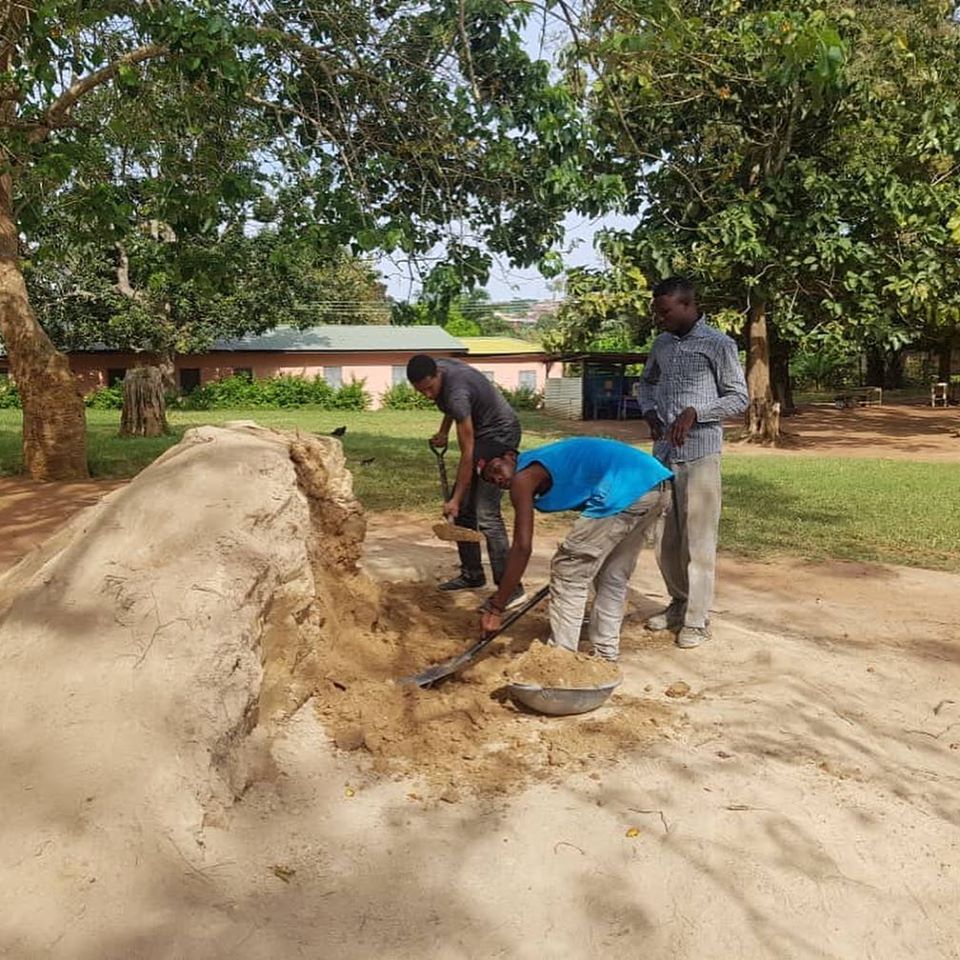
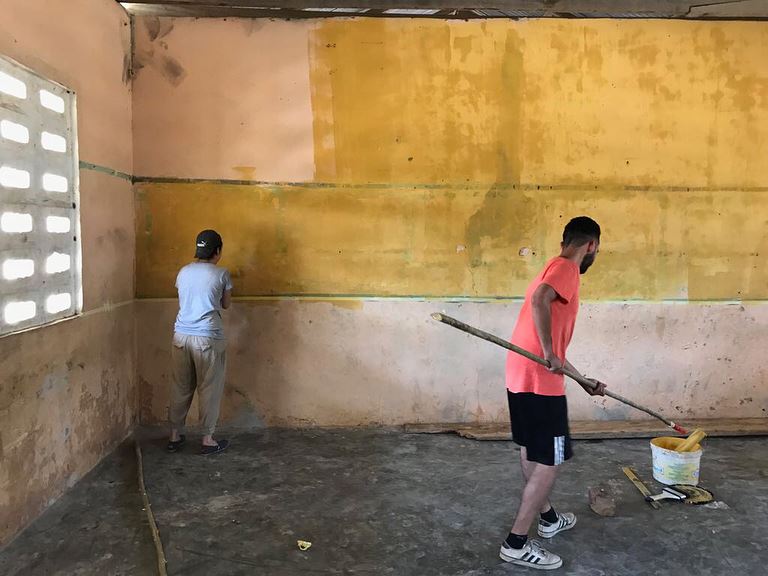
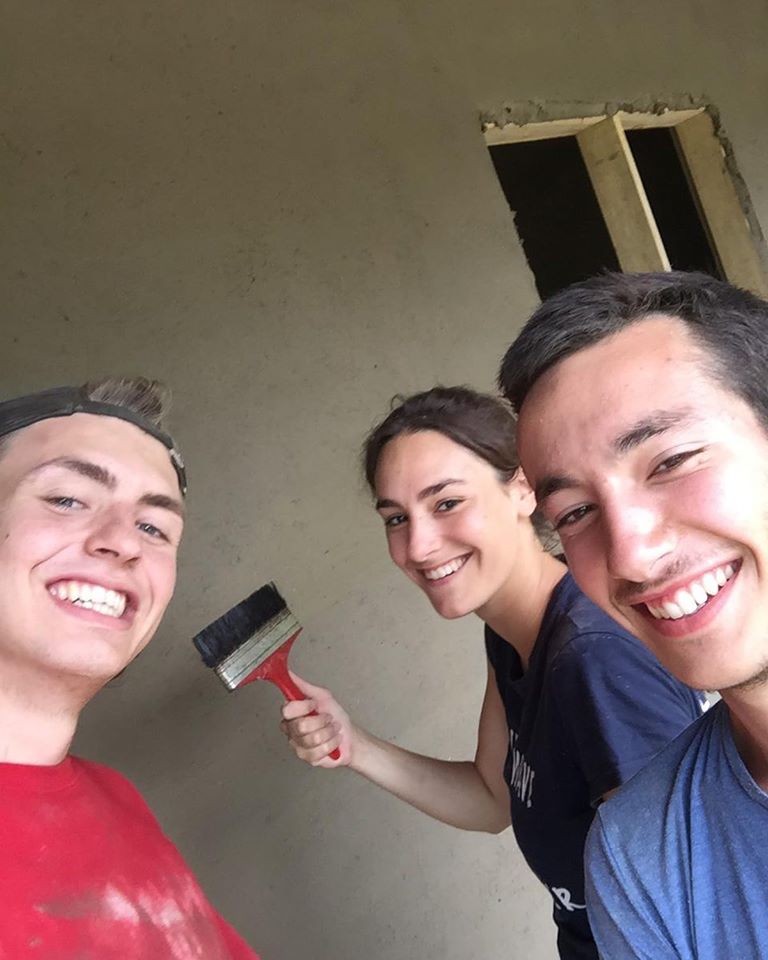
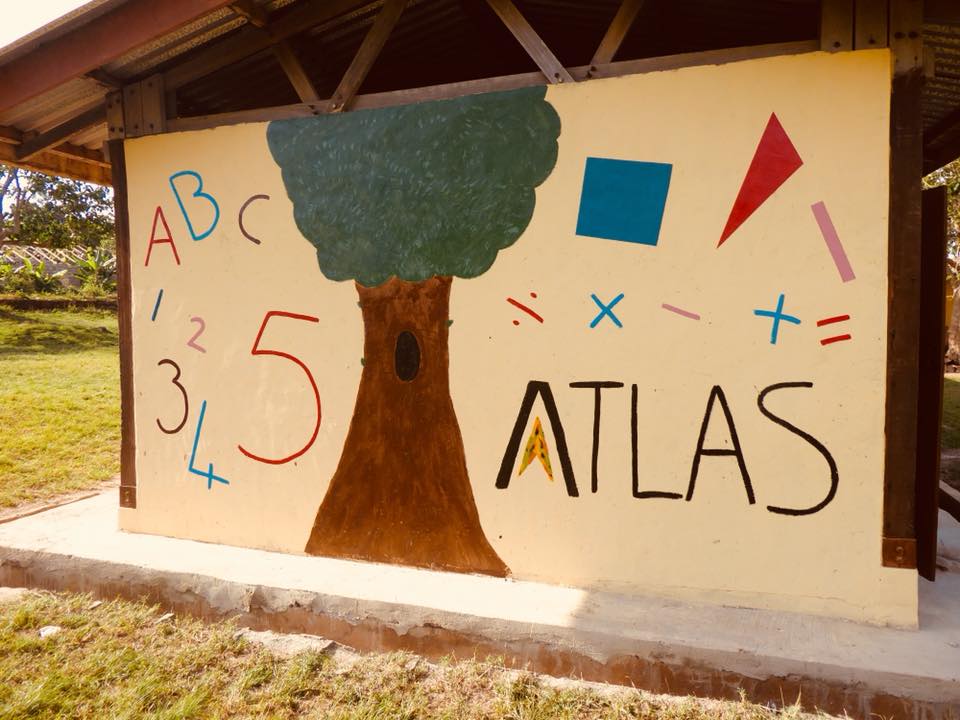
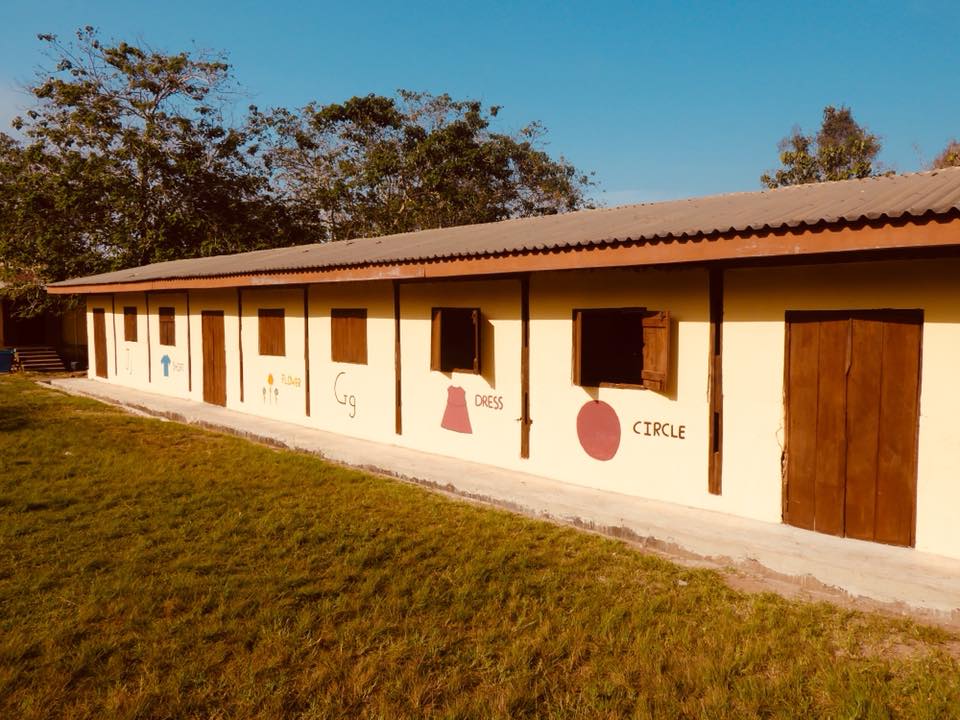
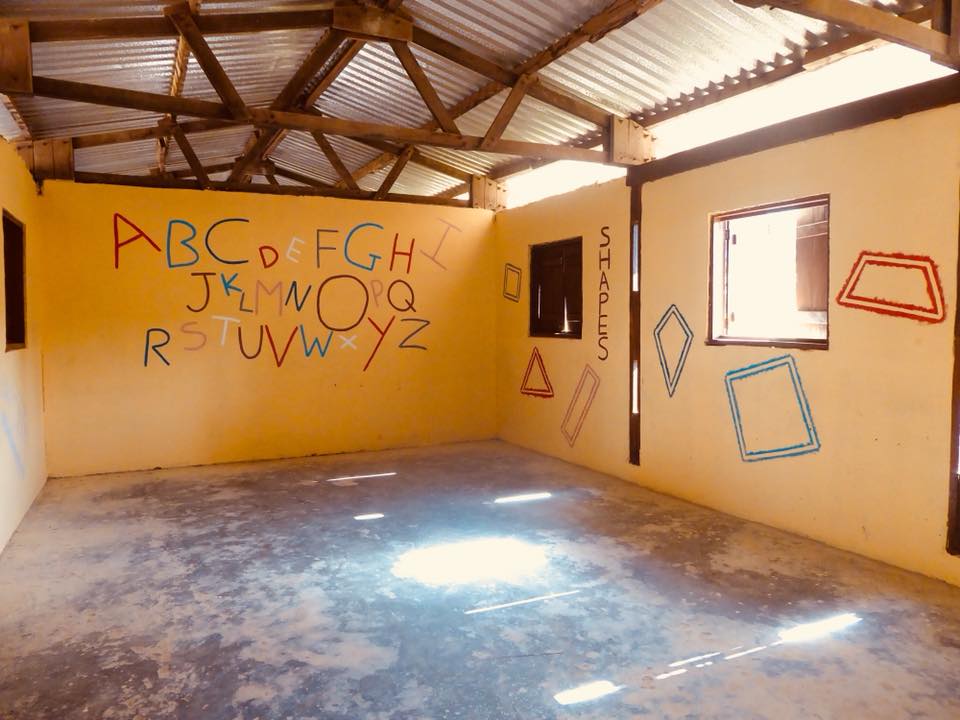
Submit your details below and a member of the team will be in touch to get you started with the application process.